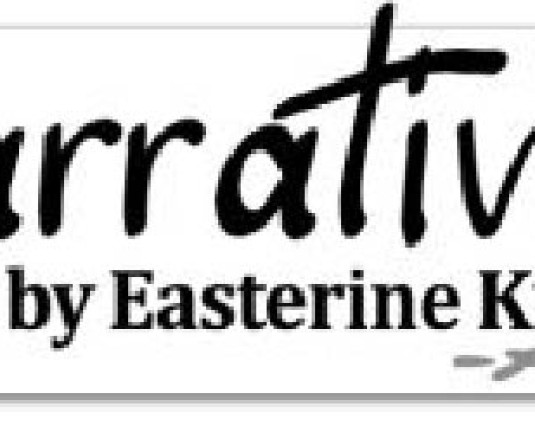
How well do we know our surroundings? How well do we know our environment? The circumstances we live in? This is a question I refer back to, time and again; whether it is upon myself or to someone else. Perhaps we could exist in a Utopia, or the dreams of yesteryears but it has skipped our Present and the void left behind may cost our Future even. When I think upon the Youth (me included), on the older generation above us or the generations to come I wonder what would make of us all. Perhaps it is not ‘presence of mind’, cunningness, the-Now, radicalism, readdressing the dog-eat-dog world we live in but somewhere an effort-taking task. If I should give a little more or myself in the process; so be it. Or even through a writing piece.
How well do we know the world outside us? What makes us prejudiced or resentful? As people of ethnic-indigenous identity who have had far too less time or space to absorb everything that came their way, our perceptions and judgments may also be muddled in the process. The definition ‘Ethnocide’ perhaps relating to us. This is where I feel we are handicapped or hapless, circumstances having defined us.
Our outside-world beyond our thresholds
1. Is Caste-system still relevant to most people? Even a ghost-structure of tacit understanding?
Hinduism is one of the oldest religion in the world and the Hindus in India constitute around 83% of the majority. How prevalent is caste-system and its connection to the religion? During the Mughal dynasty, most Hindus preserved their identity by becoming more stringent on their Vaarna and Jaat and thus identifying that to Hinduism too. Hindu temples were sometimes demolished or even forced conversion to Islam were practiced on Hindu subjects, methods of tolerance differing from ruler to ruler. That is some centuries ago now, but India of the moment is also facing another dilemma of ‘cultural-peeling’ by what is popularly known as ‘Western Influence’. I also like to observe the definition and difference between Caste and Class system. How this evolving is also influenced from the past conceptions of social segregation. Indeed the notion of caste-system in India is quite distinctive in its structure and definition, surpassing even what the outside world affiliate it most with- racism, which actually proclaim difference upon close observation.
Hinduism also preaches monism which gives it a very broad meaning encompassing, say, Christianity, Islam or Buddhism. There have been debates that Caste-system adhere to a crowd or injected-mindset; even that caste-system holds more importance than what is mentioned in the Vedas. However Islam, the next majority religion in India has also been known to practice a form of caste or distinction unlike other Muslim countries and nations in the world. In that line, Purdha system which originated from Arab countries was also influenced into the Hindu upper-class societies.
2. Linguistic difference:
For long the North and South have debated and argued about linguistic influences and superimposing of the other. Hindi may be spoken in central India but it isn’t spoken in all the parts of India, not in the South or in the North-east, and the influence of English abhorred and disliked because of its colonial influence. This is an example of linguistic differences which have also influenced regionalism or the formation of states starting with Andhra Pradesh. Maharastra speaks Marathi, Gujarat speak Gujarati, Kashmir valley speaks Kashmiri, South speaks Malayalam, Kannada, Tamil, Telegu, Tulu and Kodava. In fact there are 22 scheduled languages recognized under the 8th Schedule of the Constitution of India. So, one can almost taste the diversities of India from state to state.
2. Yes, India is officially a secular nation but it has known its share of communal riots, perhaps beginning from the Partition. Secularism is evolved from a mindset as it is in practice and incidents of communal riots are also a reminder of how much India needs to reflect or grow to reach that goal.
3. Development or Economic growth is coming and it has reached some of our needs but it is a process that needs nurturing and proper attention. The middle class is growing, following a decrease in the lower class as well. The middle class are enabling their voices and rights to be heard bringing a class in society into more focus. But it needs consistency to be stable, or to grow. That is why in its infancy stage we still need to nurture and wait for it to grow as this cannot be achieved in a fortnight, a year or even years. Growth comes with understanding and failure experiments too. I came across an article in outlook magazine about the new slaves in India, uneducated villagers or unprivileged poorer people who work as helpers and maids in Indian metropolitan cities. Even with contrast and contradiction, growth will hopefully be the consequence.
India’s population is the second largest in the world and by 2050, it is predicted that we will override China. The bulk of the population are either uneducated or tongue-tied three ways while government schools have sadly been neglected. There is a hump in the country, literacy rate is higher in South India, a higher standard of living. But in comparison, the north has more population than the south constituting 40% of the entire population, also a larger youth population too. North India’s median age twenty-six as compared to the south median age of thirty-four. We also may be addressing a rising middle, upper-class gap with the lower-class according to accessibility, privileges or standard of living. Indian cities were neglected for the first half of its independent years, being shuffled between state and central government. Also critiqued for its metropolitan (and also colonial influence) atmosphere. The cities were seen as places of disaster or neglect, while considered a beacon of hope and promise for India’s rural poor, the dispossessed and the unemployed.
Are we familiar with these realities? Are we aware of the different circumstances and demographics which influence and sway a nation? Do we address them and also consider our position in the whole of it?
Our Dilemma
It is not so much ignorance but survival or perseverance that I like to gain knowledge and enlighten myself too. Sometimes it is sad that ignorance costs us in more ways than conscious-absorptions. I can also discern what little idea about Indian metropolitan cities, culture, tradition and functionings. If I am addressing the youth population in our society I sometimes wonder what this may consequence us; in unfortunate circumstances of discrimination or even ignorance-paid. Although a very alien culture to our ethnic-indigenous identity, knowledge brings forth understanding and even revelation I do like to believe.
It is about survival. It is about adherence to adjust and in the process, we have managed to preserve a little of ourselves. We have managed perhaps, hopefully, to even benefit ourselves. Because this is our outside-world, whichever way we would like to address it beyond the ‘Chicken-neck’ it’ll be our reality. Therefore adaptation to benefit or to understand and survive accordingly may somewhat be relevant, perhaps.






